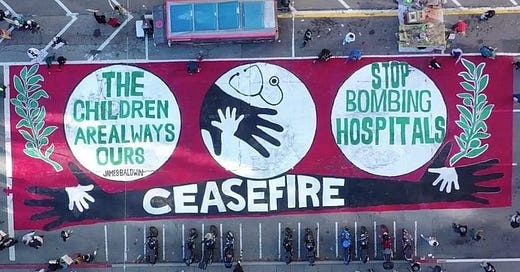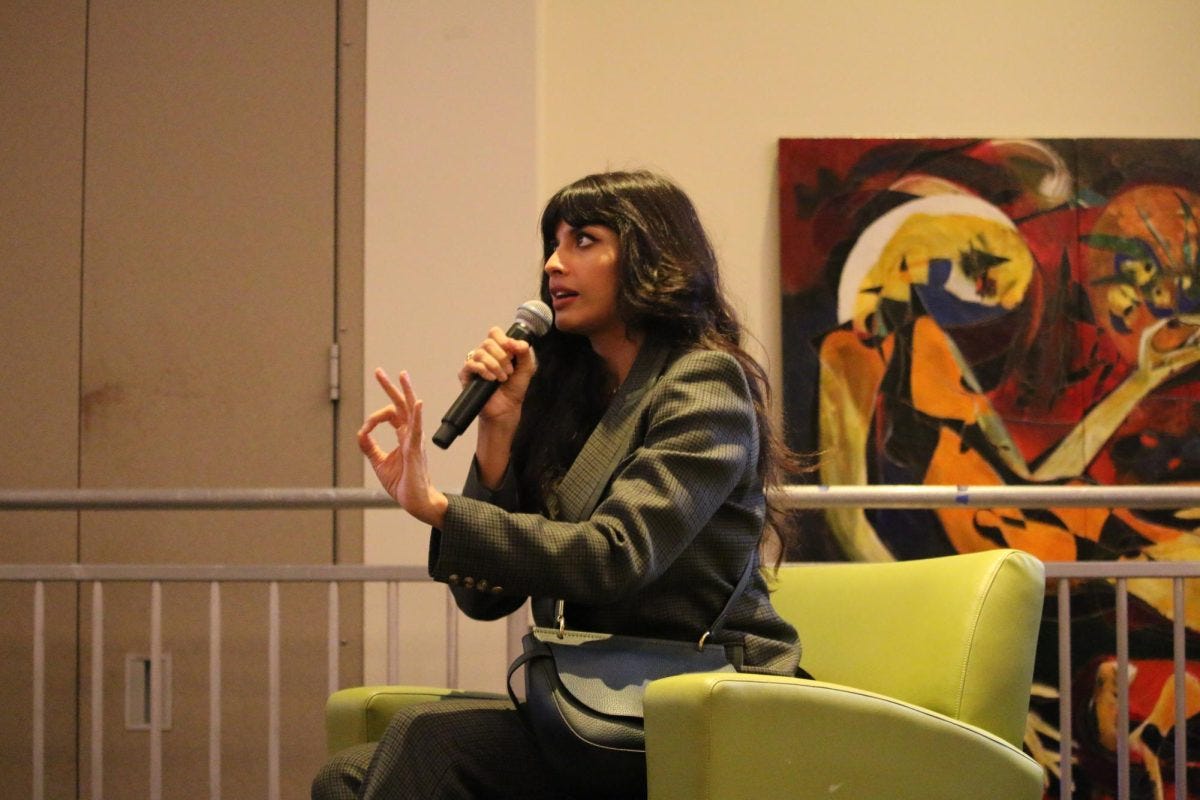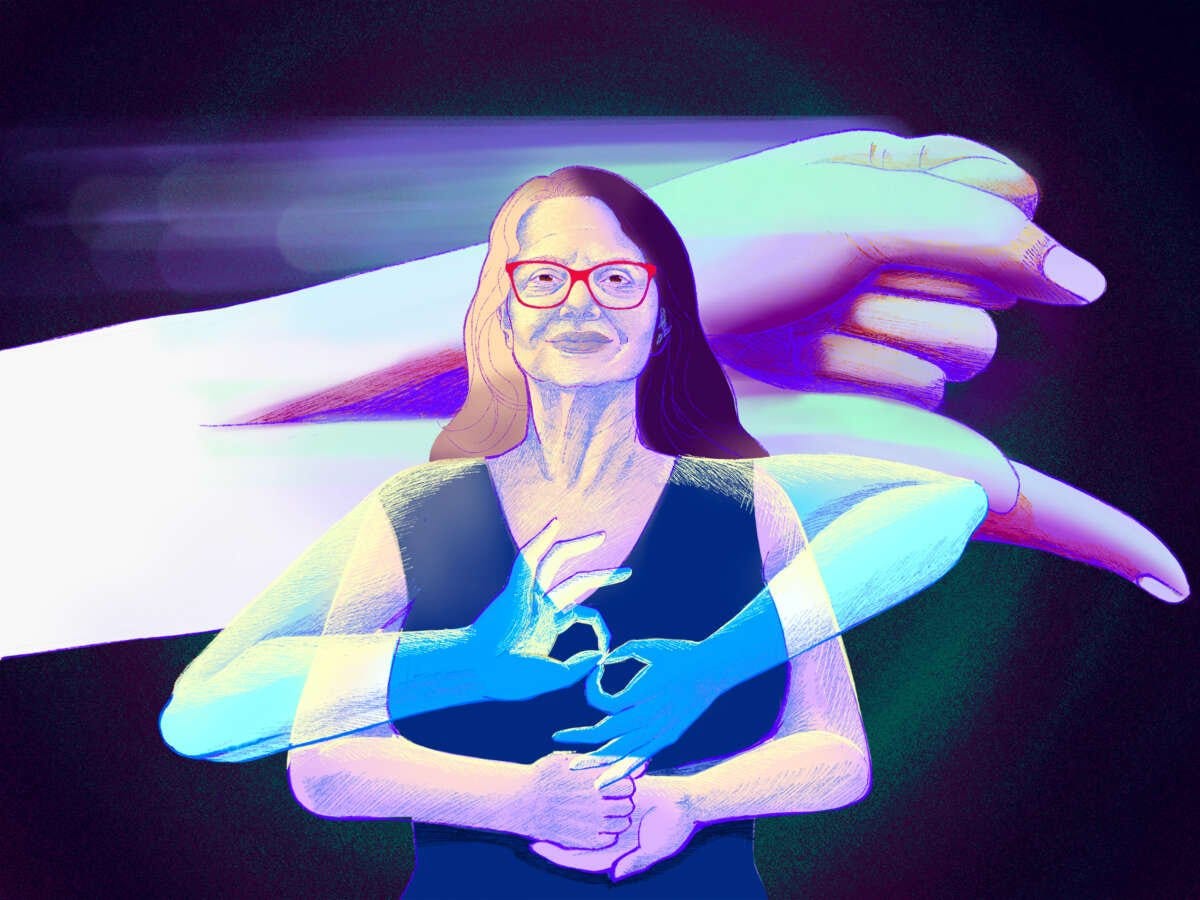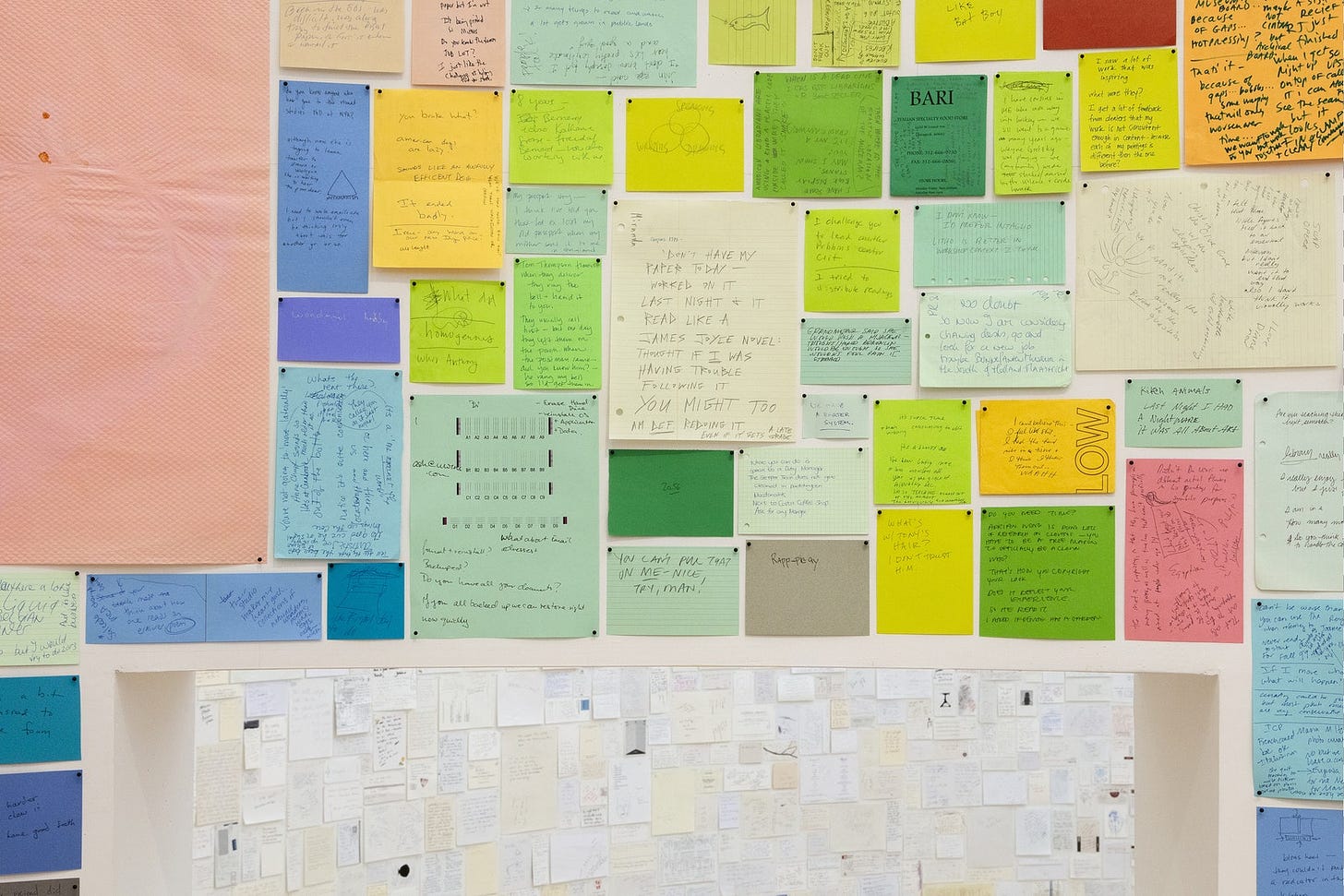Crip News v.120
"Disability Justice," new works, NEA convening, calls, and events. Thanks for being here.
NEWS
“Disability Justice”
Every so often, I report on some of the corners of the internet where I notice this term is appearing. Here are some recent findings:
There are new Spanish and Plain Language translations of the Disability Justice Audit Tool written by Leah Lakshmi Piepzna-Samarasinha and envisioned by Stacey Park Milbern and Leah Lakshmi Piepzna-Samarasinha.
Student journalists at Saint Louis University reported that disabled actress Jameela Jamil was paid between $30,000 and $90,000 to discuss “disability justice” and hustle culture at a recent campus event.
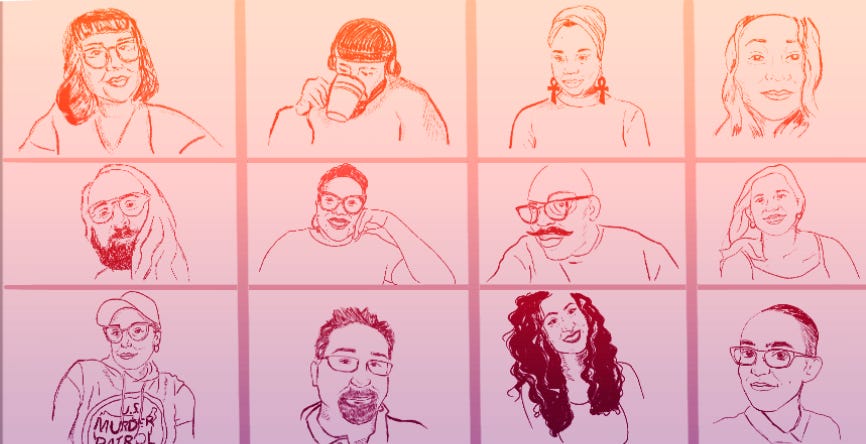
Illustration by Danya Zituni. PeoplesHub published the first edition of a new zine, Until They Win It!, featuring documentation of the organization’s work to advance Disability Justice and Solidarity Economy organizing.
In a new report from the Southern Poverty Law Center called “Sheltering Injustice,” policy analyst Gina Azito Thompson said the state of Georgia’s criminalization of people experiencing homelessness “is a pressing racial and disability justice issue.”
Canadian disability scholars Michelle Stack and Heidi L. Janz recently published “Eight Ways to Support Disability Justice and Counter Ableism” in The Tyee.
With a $100,000 grant from the Mellon Foundation, Portland State University’s Women, Gender, and Sexuality Studies Department is kicking off a project called “Build as We Fight: Radically Reimagining Social Justice” with a focus on “disability justice” and a keynote lecture by organizer Leah Lakshmi Piepzna-Samarasinha.
Ariel Adelman and Hayley Brown from the Center for Economic and Policy Research give a thorough recap of a recent SCOTUS ruling in a new report called “Disability Justice and Civil Rights: The Fight Isn’t Over After Acheson v. Laufer.”
New Works
PBS NewsHour launched a series, “Disability Reframed,” with reporting from Judy Woodruff on the battles to supply and receive disability care, fights for wage equality, and how climate change disproportionately impacts disabled populations. The episode features ASL interpretation by Deaf interpreter April Jackson-Woodard.
New America published a new report called “Pennies on the Dollar: The Use of Subminimum Wage for Disabled Workers across the United States” with state-by-state report card scoring.
George Yancey recently published “What Can Deaf Philosophy Teach the World — and How Will It Change It?” on Truthout.
Max Norman profiles deaf artist Joseph Grigely on the occasion of Grigely’s largest show In What Way Wham? on view at MASS MoCA through March.
Crip’d Ecologies, up at Root Division in San Francisco through March 10, “centers disabled artists across race, gender, class and disability, who are expanding ideas of environmentalism toward a more complex reflection of our feelings of trauma, fear, anger and desire.” Featuring work by Indira Allegra, Megan Bent, Elana Cooper, Peter Cordova, Vanessa Cruz, Leeza Doreian, Alexa Dexa, Priyanka D’Souza, M Eilo, Stephanie Heit, Petra Kuppers, Cynthia Lee, Darrin Martin, Beast Nest, Naomi Ortiz, Tricia Rainwater, Jaklin Romine, Octavia Rose Hingle, A. Sef, Maia Scott, Ruth Tabancay, Aura Valdes, Anuj Vaidya, Ines Villalobos, Cata Gomes, and Claudia Alick.
Condé Nast Traveler published “14 People Making Travel More Accessible in 2024” in its Beyond Barriers series.
Ahead of the UK premiere of his show an Accident / a Life at Tramway in Glasgow on March 22 - 23, disabled dancer and choreographer Marc Brew published a biographical essay in Home & Interiors Scotland.
White House & NEA Convening
The White House Domestic Policy Council and National Endowment for the Arts recently hosted a big-tent convening called “Healing, Bridging, Thriving: A Summit on Arts and Culture in our Communities.” There were several announcements during the event about new initiatives in what the NEA calls its “whole-of-government” approach to arts and culture at the federal level:
The Department of Health and Human Services and the NEA are launching a new Interagency Working Group on Arts, Health, and Civic Infrastructure to “enable communication and coordination across more than ten federal agencies to further partnerships, research, and increased opportunities for the inclusion of arts and cultural strategies for advancing health and strengthening civic infrastructure.”
The NEA is committing $5 million for “an initiative to support the work of artists and arts organizations in contributing to the health and well-being of individuals and communities.”
The Environmental Protection Agency will embed a minimum of 6 artists-in-residence within national estuary or urban water locations over 18 months.
The NEA will contribute $2 million to the National Endowment for the Humanities’ “United We Stand” project to “ensure that arts organizations join their humanities colleagues in this united effort to counter hate.”
The gathering occurred just days after Crip News reported that the NEA is funding sub-minimum wages for disabled workers. During one panel, the AFL-CIO’s Jennifer Dorning gently pressed Alaysia Black Hackett, the Chief Diversity and Equity Officer at the Department of Labor, to enforce “prevailing wage standards.”
Full videos from the convening are available here.
CALLS
The Disabled Journalists Association is seeking survey respondents as part of research “that aims to identify the needs of disabled journalists in the industry.” More here.
The People’s CDC has issued a call-to-action about Covid vaccine access via public comment to the CDC:
Università di Macerata in Italy is accepting applications for a Master’s Program in Accessibility to Media, Arts and Culture. Applications due March 15. More here.
EVENTS
Understanding and Transforming the Medical Industrial Complex Part 2: Climate Justice Edition
Starting March 14, on Zoom
This series from the Health Justice Commons focuses on the intersections of ableism, medical racism, and environmental racism and their entanglements with the Medical Industrial Complex (MIC). It explores the historic and ongoing connections of big pharma with corporate polluters and legacies of eugenics and genocide around the globe. The series also examines how settler-colonialism underpins the climate crisis and profound, ongoing violence and harm. You do not have to have taken part 1 to enroll in and benefit from part 2, we’ll provide resources to catch you up! The Spring Pol Ed series explores how the MIC – as a primary site of racialized and gendered medical ableism and violence – has been complicit with, profited from, and has played a significant role in causing climate crisis. It will also explore the many ways these patterns have intensified during the ongoing COVID-19 pandemic and mounting US and global trends of fascism, costing millions of lives. This is more urgent with the ongoing genocidal siege on Palestine being paid for by US tax dollars and abetted by israeli doctors and many major US health institutions. We’ll learn about the current conditions in Palestine and the Global South from a climate and disability justice lens and support participants to take action. We will also look at the latest research revealing climate crisis and pollution’s causative roles in the rise of multiple diseases, and learn in-depth how many institutions and industries within the MIC profit from the very diseases they cause.
Transformative Mental Health Core Curriculum
Learning Experience cohorts starting March 4, or self-paced, online
IDHA’s Transformative Mental Health Core Curriculum draws upon knowledge and traditions across a range of disciplines, social movements, geographies, and perspectives to advance approaches to mental health care rooted in humanity, care, and support. It centers the impact of structural oppression on our well-being, amplifies visionary voices of lived experience alongside research and professional perspectives, and introduces concrete tools, modalities, and language for addressing issues that so often end up medicalized. It is locally-grounded, trauma-informed, attuned to power dynamics, and celebrates diverse ways of thinking about mental health. Over the course of eight modules, you will be introduced to a systemic, historical analysis of mental health, including how racism, ableism, and other forms of oppression intersect with mental health; diverse narratives of lived experience and the powerful impact of grassroots movements, past and present; a variety of community-based and peer-led practices that support healing; and a transformative mental health lens and how to apply it to your life and work.
Conversation on Audio Description with Thomas Reid and Colleen Connor
Thursday, Feb. 22, 2 - 3pm ET, online
Join us for an informative and lively conversation as we talk about Audio Description for Dance and other topics through the lens of narrators and trainers who are Blind.
Kinetic Light LAB Incredibly Chill Art Share
Friday, Feb. 23, 2 - 4pm ET, on Zoom
The Incredibly Chill Art Share will offer space for folks to share something, anything that they’d like! It could be a poem, quote, a draft of a new work, a work of art you love, a painting, a short dance clip or captioned video, a recipe...anything. This can be yours or someone else's. If it is someone else's, we just ask that you credit the person who created it. Use the space to practice making your art more accessible for disability communities! LAB Co-Producers are available to offer guidance and some support for presenters as they share the responsibility with us of centering accessibility at the gathering.
Poetry Writing Workshops
Various dates & times
Join Tentacles for a new series of facilitated online poetry workshops for anyone who considers themself to be chronically ill, neurodiverse and/or disabled. The workshops will be lead by Neal Pike and Sarah Wilson, with guided writing exercises and opportunity to share work. We use a variety of art as inspiration: poems, music, visual art, to help get the creative juices flowing and get you writing new and exciting things.


